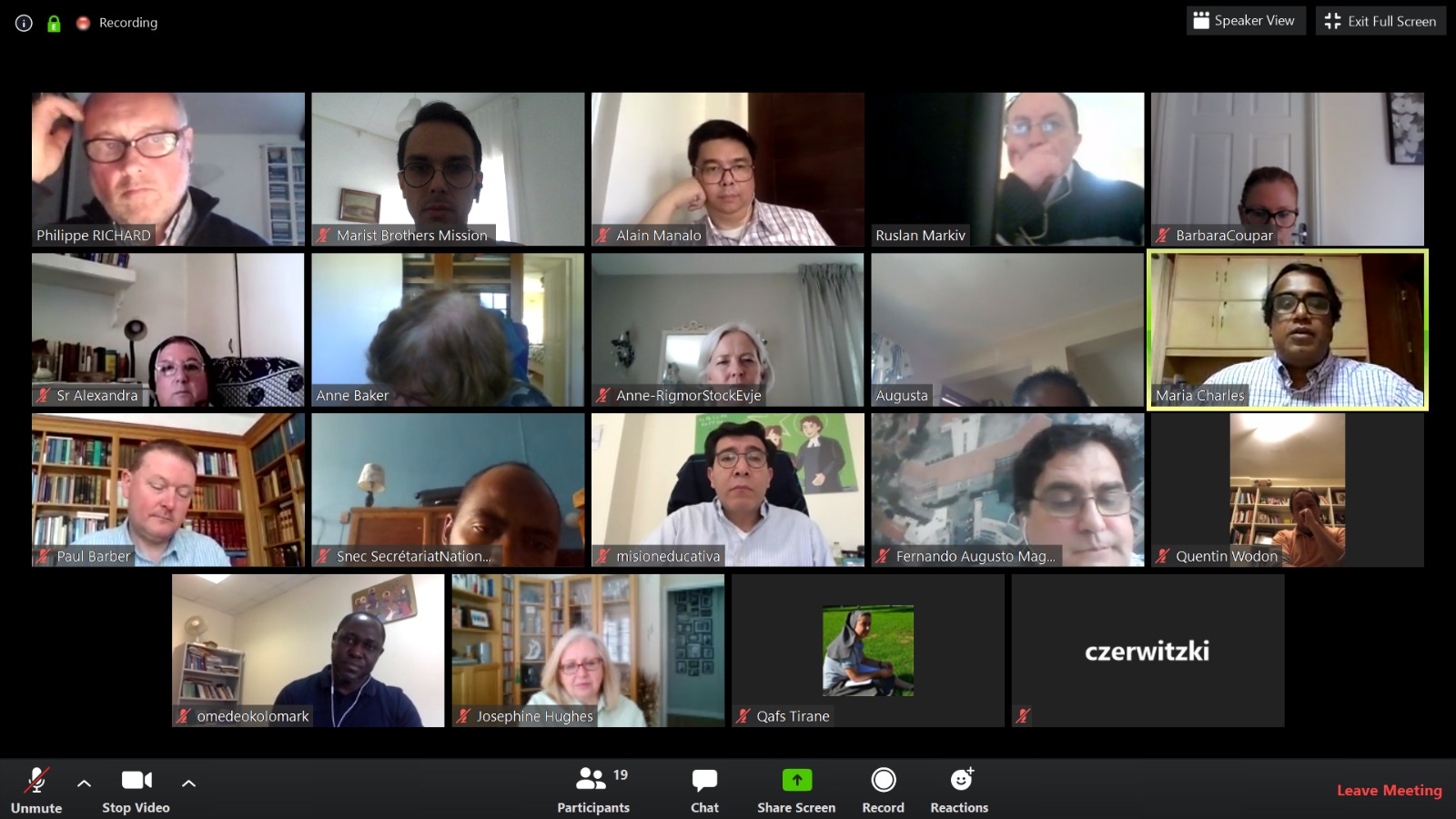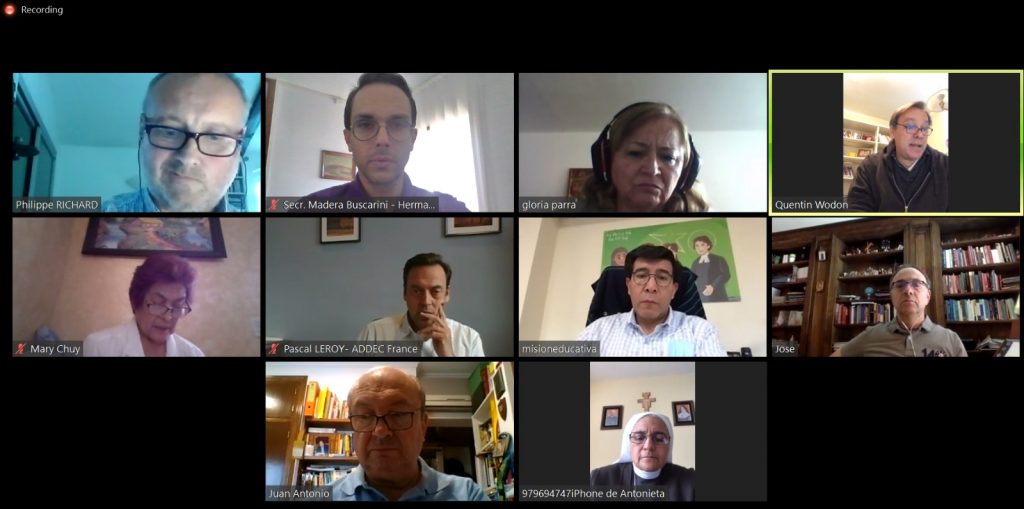
Representatives of Catholic Schools reflected on the challenge of educating during the Covid-19 period
From May 4 to 6, the International Office of Catholic Education (OIEC) that groups Catholic education throughout the world held online interactive sessions on Covid-19. During the videoconference Br.Mark Omede, Co-Director of the Secretariat of Education and Evangelization, and Diugar Matera, secretary of the Secretariat, represented the Marist Institute, which is associated member of the OIEC.
The meeting led by Philippe Richard, Secretary General of the OIEC was convoked to listen to the experiences of members on the Covid-19 pandemic and the impact on the catholic education and mission
An overview of the events around the world was shared by Quentin Wodon, Lead Economist with the Education Global Practice at the World Bank, who work voluntarily with the OIEC office. He talked about the coronavirus crisis and the challenges faced by the catholic schools in many countries.
Mr. Wodon analyzed the results of the online survey (carried out by members of the OIEC) on how the pandemic is affecting the catholic education. Results were derived from 30 countries. 78% are reaching out to the pupils and students through distance learning by internet. However, Africa is slower; some are using the radio, mobile phones and other means. Some countries are adapting the curriculum for September. Some countries are not specific about the re-opening dates but hope to do so before the end of the year. Some countries are also expressing concern on the impact on enrolments. Many are worried that enrolments will drop by 30%. To give more information about how to manage the situation there are some writings to be shared in the next days, he announced.
The representatives spoke about the challenges they have in responding during the health emergency, developing new online study projects, difficulties of parents in paying pensions, lack of access to Internet and technological resources by some students, expectations about the success of the virtual learning on the part of the parents, and etcetera.

